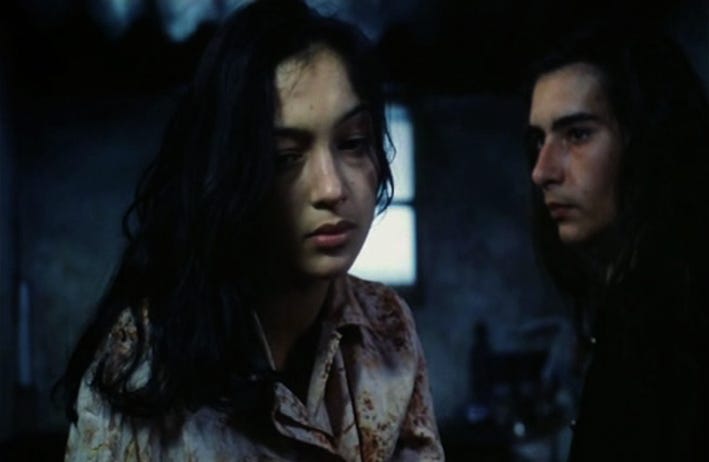More than anything, Ossos is marked by a distinct lack of want. Clotilde doesn’t really want her job or her husband; her husband doesn’t want her back; Eduarda doesn’t want to be alone; Tina doesn’t want to be a mother, doesn’t want to live; Tina’s boyfriend doesn’t want anything; nobody really wants the baby that drives the plot. Even the characters’ respective smoking addictions appear to be done with profound disinterest. This extends to the other side of the camera, where the Fontainhas neighborhood’s largely Cape Verdean manual laborers didn’t want a film shot in their squalid confines while they tried to sleep ahead of long days servicing Lisbon’s richer inhabitants, which famously led director Pedro Costa to shut the set lights off and discover darkness for a story that doesn’t especially want to explore its characters’ interior lives, let alone pursue those dark corners further or all the noise happening out of frame. In beautifully composed, slow-moving scenes, what’s most strange about the first of Costa’s Fontainhas trilogy is that you’ll find yourself not just wanting to watch, but to watch again.
Discussion about this post
No posts




